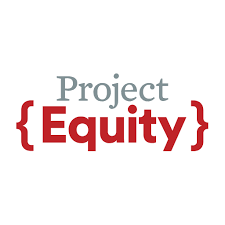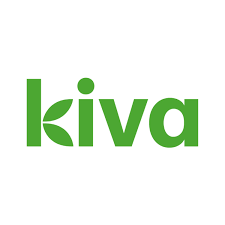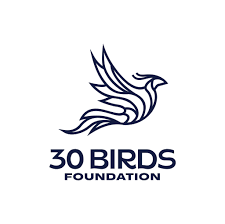Consultancy: Evaluation of Funding Grants to Partners
TrustAfrica is commissioning an independent evaluation of the African Civil Society Support Initiative (ACSI), a proactive support mechanism that provided operational and capacity building funding support to twelve Civil Society Organizations (CSOs) in 5 countries across sub-Sahara Africa. The purpose of the evaluation is to assess the value addition of the grant’s contribution to building the resilience of CSOs in the aftermath of the COVID-19 pandemic. The evaluation will determine the intended and untended, both positive and negative outcomes and impact of ACSI on the recipients CSOs. It will also provide recommendations and lessons learned to inform future strategies and decisions for rolling out core institutional grants.
Introduction to TrustAfrica
TrustAfrica is a Pan-African foundation established in 2006, driven by the conviction that Africans must lead the agenda in addressing the continent's most pressing challenges. As an independent philanthropy located on the continent, our identity and operations are deeply rooted in African contexts. Our Vision is African citizens living with dignity in a sovereign, just, and prosperous Africa. Our Mission is to promote responsible citizenship and accountable leadership in addressing Africa’s most pressing challenges. TrustAfrica’s values and principles of what is important to us are anchored around: Solidarity, African Agency, Pan – Africanism, and Justice and Inclusion.
- About ACSI
TrustAfrica with the support of the Bill and Melinda Gates Foundation (BMGF) established the African Civil Society Support Initiative (ACSI) to build the resilience of Civil Society Organizations in Sub-Saharan Africa post the COVID-19 pandemic. Twelve CSOs, in two cohorts, from West Africa (Burkina Faso, Nigeria, Senegal) and East Africa (Ethiopia, Kenya) benefited from the support. The initiative provided core operational support and capacity-building grants ranging from $60,000 to $120,000 over 12–18 months, focusing on areas such as gender justice, financial inclusion, and health equity.
ACSI seeks to achieve three interdependent key outcomes:
- Strengthened operational capacity to advance organizational mandates and salience on policy issues by health and women’s rights civil society organizations in Sub-Saharan Africa
- Increased communication and advocacy capacity of awardee CSOs through demand-based capacity building support
- Multi-sectoral peer-to-peer network valued among CSOs which actively advances movement building and advocacy expertise
- Scope
The evaluation will assess the value addition of ACSI across the 12 recipients CSOs and will focus on the institutional/core support, capacity building and network building support. It will examine how the grant delivered on its intended objectives as well as document unintended changes. The evaluation will also generate lessons learned and recommendations for similar funding opportunities and institutional strengthening grants. It must identify any missed opportunities and deepen knowledge and understanding of successes, failures, assumptions and potential for leveraging and building upon institutional strengthening grants for TrustAfrica and BMGF.
- Purpose and Key Questions
The Evaluation Purposes are to:
- Determine the value addition of the core support grants to the organizational effectiveness of 12 recipients CSOs. This will include:
- Assess the quality of the strategy, approach and design implemented by ACSI in achieving or making progress towards intended outcomes
- Assess the effectiveness, efficiency, impact and sustainability of the grants made to the partners
- Assess external and internal factors (in design and implementation) that have contributed to or impeded achievement of outcomes
- Distil actionable and strategic recommendations and lessons learned from the initiative's design, delivery and funding approach to sustain the outcomes.
- Evaluation Questions: The following key evaluation questions could be refined, expanded, and optimized to guide the evaluation process:
- Alignment, Design and Implementation
- Why was ACSI needed and was it the right kind of support, in terms of – duration, scope, funding amount and flexibility?
- How well does ACSI align with the strategies of BMGF and TrustAfrica?
- To what extent did the grant respond to the organizational needs and challenges faced by the CSOs?
- How appropriate was ACSI design contributing to the institutional strengthening of the CSOs?
- Outcomes & Impact influenced by ACSI
- How valuable were the outcomes and impacts of ACSI on the CSOs recipients?
- What intended and unintended changes (positive or negative) have been inspired or catalyst by the ACSI support and how important were they for the CSOs?
- Learning and Sustainability
- What has been learned so far to inform future strategies and decisions of BMGF and TrustAfrica on institutional core funding?
- What external and internal factors as well as challenges and risks have influenced the set–up, implementation, successes and failures of ACSI?
- What were the missed opportunities and ideas?
- To what extent are the outcomes and/or impacts being or are likely to be sustained or grown over time?
- What are the main factors that promoted and/or reduced the grants’ sustainability and results?
- Proposed Methodology
Methodology
The evaluation approach will be largely guided by the scope, purpose, key evaluation questions, and time. The consultant(s) are expected to propose an appropriate approach and methodology for the assignment. While quantitative data analysis is welcome where applicable, Qualitative and storytelling approaches are encouraged to uncover critical and unique insights into the value addition of the institutional strengthening grant, and how it has contributed to the desired changes. The methodology may include reviews of relevant ACSI documents held by TrustAfrica as well as interviews with CSOs partners, TrustAfrica and BMGF representatives. Due to time and budgetary constraints, remote data collection methods are preferred. It is expected that the proposed evaluation approach will clearly articulate how institutional strengthening outcomes will be measured, drawing on appropriate frameworks and tools.
- Stakeholder Involvement
Stakeholder involvement is critical to the successful execution of the evaluation process. The consultant(s) is expected to retain independence in coming to judgments about the merit of the grant but employ participatory and collaborative approaches, providing for meaningful involvement of BMGF, TrustAfrica, and the CSOs management and staff.
- Roles and Responsibilities
The TrustAfrica team led by the Programs Manager supported by the Program Officer, Grant officer and MEL officer will be responsible for:
- Overall responsibility and accountability for management and delivery of the evaluation, including the approval of the final report.
- Facilitation of access to ACSI documents, and access to stakeholders
- Reviewing and commenting on drafts of inception reports.
- Facilitation and participation in key meetings (workshops, meetings, etc.)
The consultants are responsible for:
- Conducting all the necessary assessments including documentary reviews and interviews
- Day-to-day management of the evaluation process
- Regular reporting (formal and/or informal) to the TrustAfrica team
- Participation in key evaluation related meetings (kick off meeting, inception report meeting and draft findings meeting etc.)
- Production of deliverables (inception report, draft and final evaluation report) in accordance with the terms of reference and contractual agreements
The consultants will report to ACSI program lead and the grant officer on all issues related to the task/scope of contract, fees, and deliverables, and commenting/responses processes.
- Processes, Deliverables, and Timeline
7.1: The consultant will: review program documents (grant agreements, reports, monitoring data, evaluations, etc.); conducts interviews with staff, grantees, beneficiaries, other stakeholders; facilitate focus group discussions when necessary; analyze financial data related to the grant allocation and its utilization; assess grantees’ capacity development effort linked to the ACSI grant,
7.2: The consultant will prepare an inception report in the form of a Reflection Report and work-plan to operationalize the ToR. The inception report will be based on preliminary documentary reviews and interviews with the ACSI team. The report will address the following elements: expectation of assignments, elaboration on the proposed evaluation approach and methods of data collection, and reporting template/structure.
The inception report and work – plan will be approved by the ACSI Programs Officer and act as an agreement between TrustAfrica and the consultants on how the evaluation is conducted.
Deliverables
The evaluation requires the consultant to submit the following deliverables:
- An inception report
- Draft evaluation report
- Findings meeting with ACSI team
- Final evaluation report, not exceeding 20 pages
- Concise Learning Brief distilling the CSOs unique success stories and lessons learned (3-5 pages)
- Level of Effort & Consultant Requirements
The expected level of effort is 20 consultancy days.
The consultants are expected to meet the following requirements:
- Proven experience in evaluating organizational strengthening initiatives and multi-country core support grants initiatives.
- Demonstrated experience evaluating alliance building and community of practice capacity building initiatives
- Adequate knowledge, skills and experience of innovative evaluations methodologies for determining organizational effectiveness.
- Strong facilitation and partner engagement skills
- Understanding of African Civil Society Context
- Ability to conduct assessment in English and French.
- Experience in producing visualization and infographic reporting
Proposal Submission Guidelines
Proposals should be submitted via email to cfp@trustafrica.org By Monday,4th of August 2025
- Technical Proposal
A narrative proposal should not be more than 5 and include the following section:
- Methodology: Describe your overall approach to carrying out the evaluation
- Relevant Experience: Provide tasks of similar context, scope, and complexity you have worked on previously
- Specific Expertise: Describe your level of knowledge and expertise in evaluating institutional Strengthening initiatives.
- Timeline: Include detailed timeline of key activities
- Please, provide two samples of relevant work to the ToR previously completed by the consultant (to be used only for the purposes of selection)
- Financial Proposal:
The financial proposal should include line-item budget and budget narrative with cost estimates in United States Dollars (USD). The estimated level of effort proposed must be aligned with the proposed approach and methodology.
This position was originally posted by Trust Africa and has been curated by PurposePhil Career. To apply, please visit the original listing on the "apply" link below. We are not affiliated with the employer organization of this job ad or consultancy, and provide this curated listing as a service to our users.

















